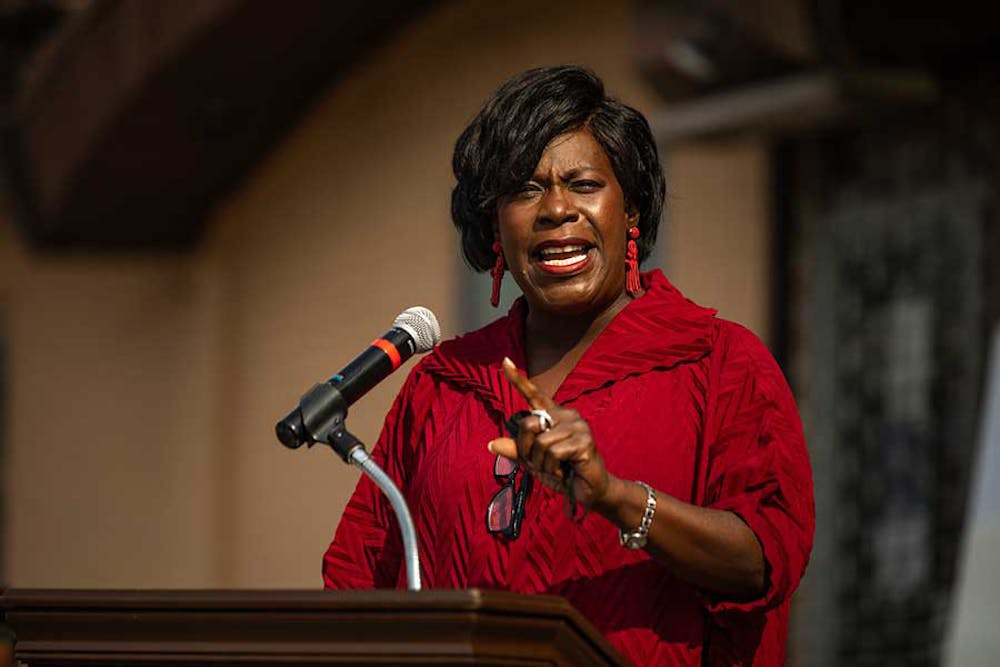2016 Fels Institute of Government graduate Cherelle Parker won the Democratic primary for Philadelphia mayor on Tuesday night.
Parker, a former Philadelphia city councilmember and Pennsylvania state representative, secured 33% of votes in the race that included four other frontrunners. In November's general election, she will face Republican candidate David Oh, who ran uncontested.
As the winner of the Democratic primary, Parker is virtually guaranteed success in the general election. Democrats comprise the majority of Philadelphia’s electorate and outnumber Republicans 7 to 1. If elected in November, Parker will be the city’s first female mayor.
Shortly after the Associated Press called the race in her favor, Parker was hospitalized at Penn for “a recent dental issue that required immediate medical attention," according to a campaign spokesperson. As a result, she was unable to attend her victory party.
A major focus of this year's race was public safety, which former Philadelphia Mayor and 1979 Wharton graduate Michael Nutter described as “virtually everyone’s No. 1 issue.”
Parker campaigned on a platform of being tough on crime, which included support of the controversial stop-and-frisk tactic of policing. According to AP, she pledged to “stop the sense of lawlessness that is plaguing our city,” in part by deploying hundreds more officers on the street to engage in community policing.
Parker previously told The Daily Pennsylvanian that she views education as the “great equalizer” and believes that Penn students “have a very unique opportunity to impact Philadelphia in a way that will put others on a path to self-sufficiency and give them access to opportunity.”
In the interview, she outlined other ways that Penn should contribute to the Philadelphia community, including committing to payments in lieu of taxes.
RELATED:
The Graduation Issue 2023: Relive the Class of 2023's four years at Penn
Michael Delli Carpini selected as interim dean of Annenberg School for Communication
The crowded Democratic primary included candidates ranging from moderate to liberal, and Parker’s win signifies an adherence to the Democratic establishment amid a wave of victories for progressive mayoral candidates in major cities across the United States.
Other frontrunners included 1993 College graduate and former Philadelphia city council member Helen Gym, who was widely regarded as the most progressive candidate in Tuesday’s election, and former Philadelphia city controller Rebecca Rhynhart.
Parker was backed by labor unions and a number of wards in the city as well as current Mayor Jim Kenney, who voted for her on May 8 but did not officially endorse her.
Pennsylvania’s status as a swing state played a critical role in the outcome of the 2020 presidential election. As mayor, Parker may be a prominent player in the 2024 presidential election and an important figure in the Democratic Party as President Joe Biden seeks re-election.
Tuesday’s election also determined control of the Pennsylvania state house. The vacancy in the 163rd House District, which oversees part of Delaware County, will be filled by Biden-endorsed Democrat Heather Boyd — allowing Democrats to maintain their majority.









